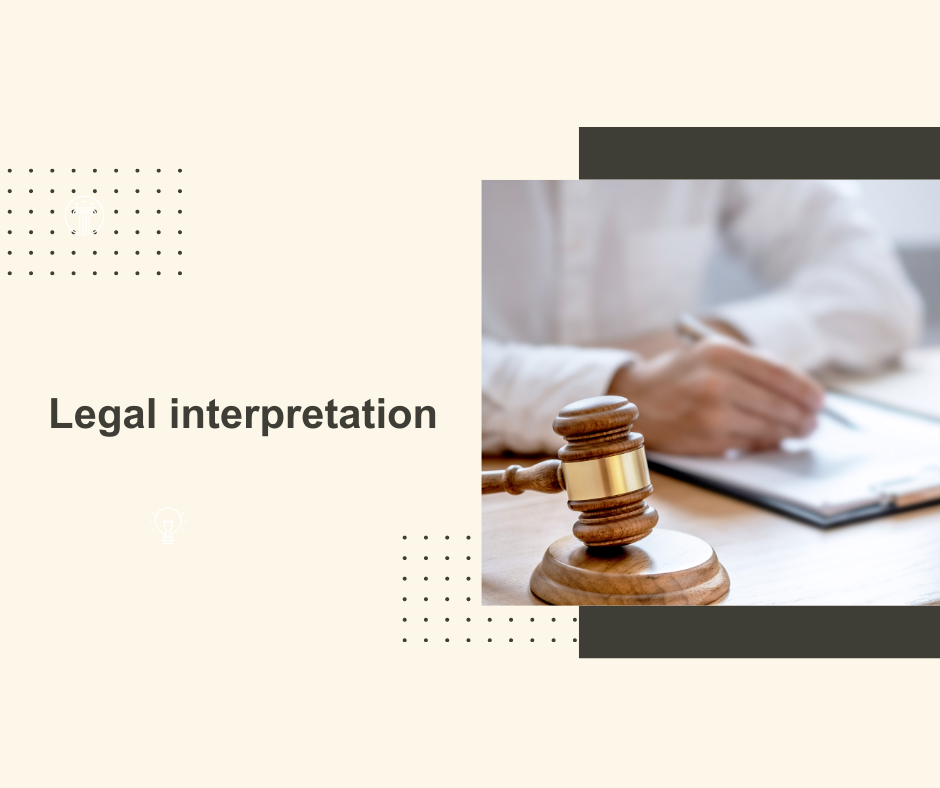Translation and interpretation: Effective communication and clear understanding are crucial in achieving the best possible outcomes in lawyers, courtrooms, cases, and judges. Within this context, the roles of legal interpreters and translators are of utmost significance. This blog delves into the distinct responsibilities of legal interpreters and translators, showing the difference between their roles and the vital importance of their expertise in facilitating effective language communication.
Contents
Legal translation
Legal translation refers to translating written legal texts from one language to another while maintaining legal accuracy and integrity and considering legal terminology, concepts, and cultural nuances.
Legal translators must be able to uncover hidden cultural and linguistic nuances, identifying specific elements that can assist their legal counterparts in expediting case proceedings.
Also know: Dubai’s Legal Translation Industry: An Overview
Most common documents that need legal translation
- Affidavits that serve as evidence in legal proceedings.
- Immigration documents, including passports, criminal records, and academic papers.
- Bank documents, including statements, account-opening paperwork, and proof of identity.
- Birth, marriage, and death certificates.
- Contracts and terms & conditions documents.
- Court documents, such as motions and briefs.
- Government records that encompass legal matters.
- Patents and intellectual property, including specifications, correspondence, and claims.
Human translation vs AI translation
AI and machine learning have become crucial components in various industries and organizations, playing a significant role in tasks such as legal translation.
However, despite its many advantages, AI falls short compared to human translators regarding accuracy and understanding.
On the other hand, AI excels in speed and cost-effectiveness, offering benefits such as automating reminders, contract analysis, legal research, and handling repetitive tasks.
Nevertheless, AI still struggles with accuracy and understanding the broader context, which can result in errors.
Therefore, human translators are indispensable in situations that demand accurate translations, cultural comprehension, grammatical precision, and complex projects.
Although AI has made significant progress, it is crucial to include human proofreading and checking to ensure accuracy and reliability when utilizing AI translators.
Legal interpretation
Legal interpretation involves the oral conversion of spoken words from one language to another during legal proceedings, such as court hearings, depositions, or client meetings.
Legal interpreters facilitate communication between parties who speak different languages, enabling effective participation in legal processes.
They must have the capacity for quick thinking, enabling them to engage in potentially tense conversations without hesitation.
Moreover, interpreters must possess strategic and critical thinking skills to make prompt decisions on the most effective language to accurately convey the speaker’s intended message.
Also know: What is needed to Translate Legal Documents?
Most common types of legal interpretation
There are various approaches and methods of legal interpretation employed, including:
Simultaneous interpretation
In simultaneous interpretation, the interpreter converts the speaker’s message into the target language in real-time.
The interpreter listens to the speaker through headphones and immediately translates the spoken words into the target language for the listeners.
This type is commonly employed in courtrooms, international conferences, and other large-scale legal events with multiple participants who require interpretation.
Skilled interpreters capable of working quickly and accurately are essential for simultaneous interpretation.
Consecutive interpretation
In consecutive interpretation, the interpreter listens to the speaker and takes notes while the speaker delivers their message.
Once the speaker completes a segment of speech or a complete thought, the interpreter renders the message into the target language.
The interpreter may stand alongside the speaker and interpret their words or take turns speaking, allowing the speaker to pause periodically for interpretation.
Consecutive interpretation is frequently used in legal proceedings such as depositions, small hearings, or one-on-one client interactions.
Human interpreters vs AI
Human interpreters bring emotional intelligence, cultural awareness, and a deep understanding of linguistic nuances to ensure accurate translations of context-dependent expressions.
While there have been improvements in machine translation, accurate and effective communication is still crucial in various scenarios like legal proceedings, where human interpreters play an essential role.
Human interpreters possess the ability to provide cultural context and understanding that machines lack, and they can interpret idiomatic expressions, regional dialects, and humor embedded in cultural contexts.
Similarities between legal interpreters and translators
Legal interpreters and translators are highly skilled professionals with extensive knowledge in their field. Although they have different sets of skills, they also have similarities, including:
- Accuracy is essential for both legal interpreters and legal translators. They must have the expertise to produce high-quality work in their specialties.
- Both roles require specialized training in legal contexts and navigating the often conflicting meanings and terminologies in legal documents.
- Interpreters and translators must deeply understand cultural nuances and distinctions to ensure smooth, error-free communication.
Key differences between legal interpreters and translators
- Interpretation deals with spoken language, while translation deals with written content.
- Translation occurs over some time with access to external resources, while interpretation happens on the spot during live scenarios.
- Translators may use computer-assisted tools such as translation memory and termbase, while interpreters rely on their immediate linguistic skills.
- Interpretation requires working under pressure and excellent communication skills due to the real-time nature of the task.
Tips to be a professional legal translator and Interpreter
Becoming a professional legal interpreter and translator takes time, dedication, and ongoing learning. Here are some expert tips to help you professionalize:
- Fluent in at least two languages through extensive reading, writing, speaking, and listening practice.
- Get a bachelor’s or master’s degree in translation or a related field to gain the necessary knowledge and skills.
- Focus on legal terminology and concepts by taking specialized courses or workshops.
- Study the legal systems, procedures, and specific terminology in legal documents and proceedings.
- Keep up with legal developments and language trends through reading, professional courses, and continuous language skill improvement.
- Maintain professional ethics and confidentiality and avoid conflicts of interest by familiarising yourself with ethical guidelines for legal interpreters and translators.
In conclusion, legal interpreters and translators play distinct but equally essential roles in facilitating effective communication in legal settings. While AI translation offers speed and cost-effectiveness, human translators are indispensable for accurate translations, cultural comprehension, and complex projects. Similarly, human interpreters bring emotional intelligence and cultural context that machines lack.
Both professionals require specialized training, expertise in legal contexts, and a deep understanding of cultural nuances. Whether translating written texts or providing oral interpretation, accuracy, and excellent communication skills are critical in these crucial roles.
Choose accuracy. Choose excellence. We are chosen for all your legal translation and interpretation needs. Contact us today and start transforming your legal world today!




